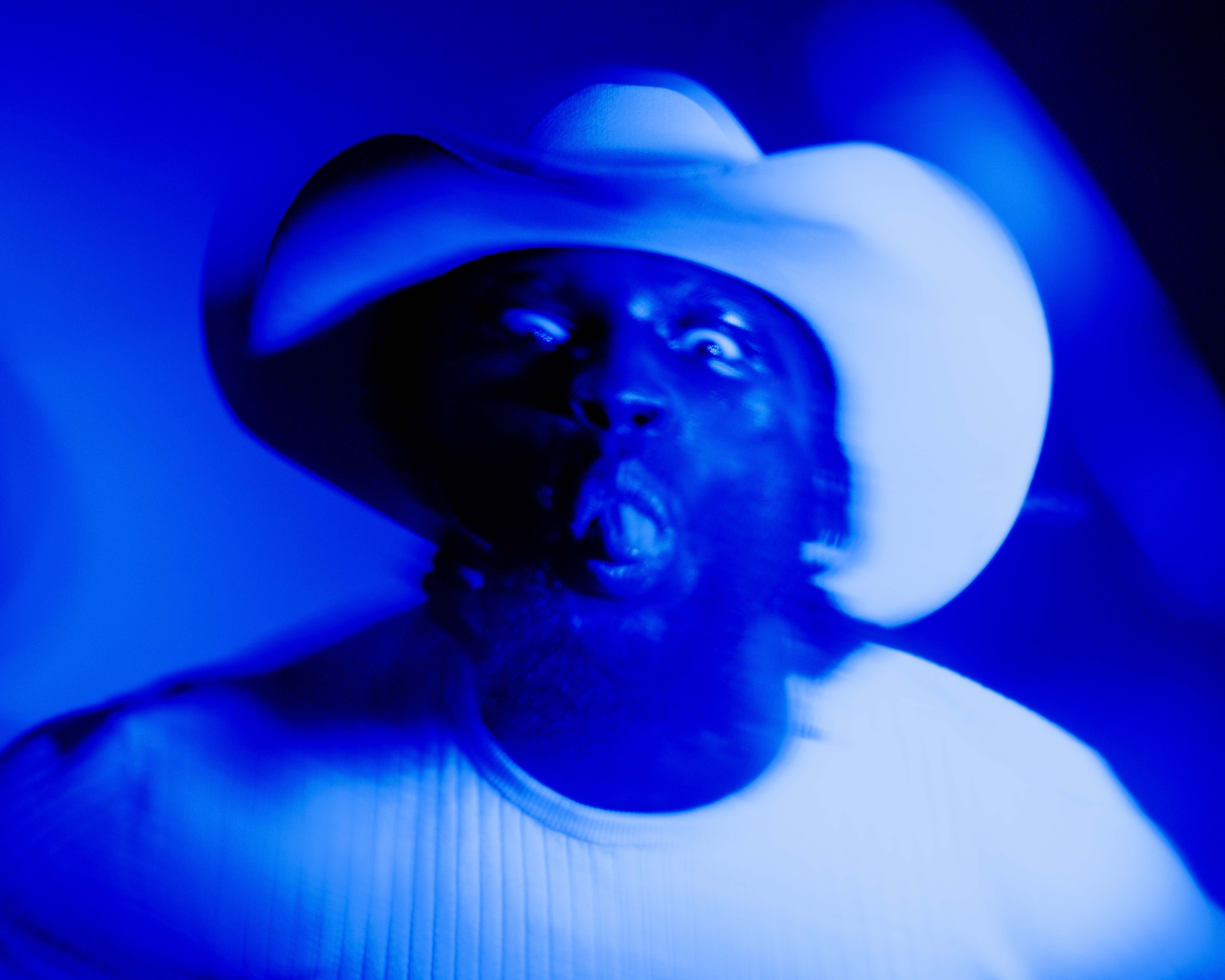Denzel Himself Will Lead The Goths To Victory
Selim Bulut
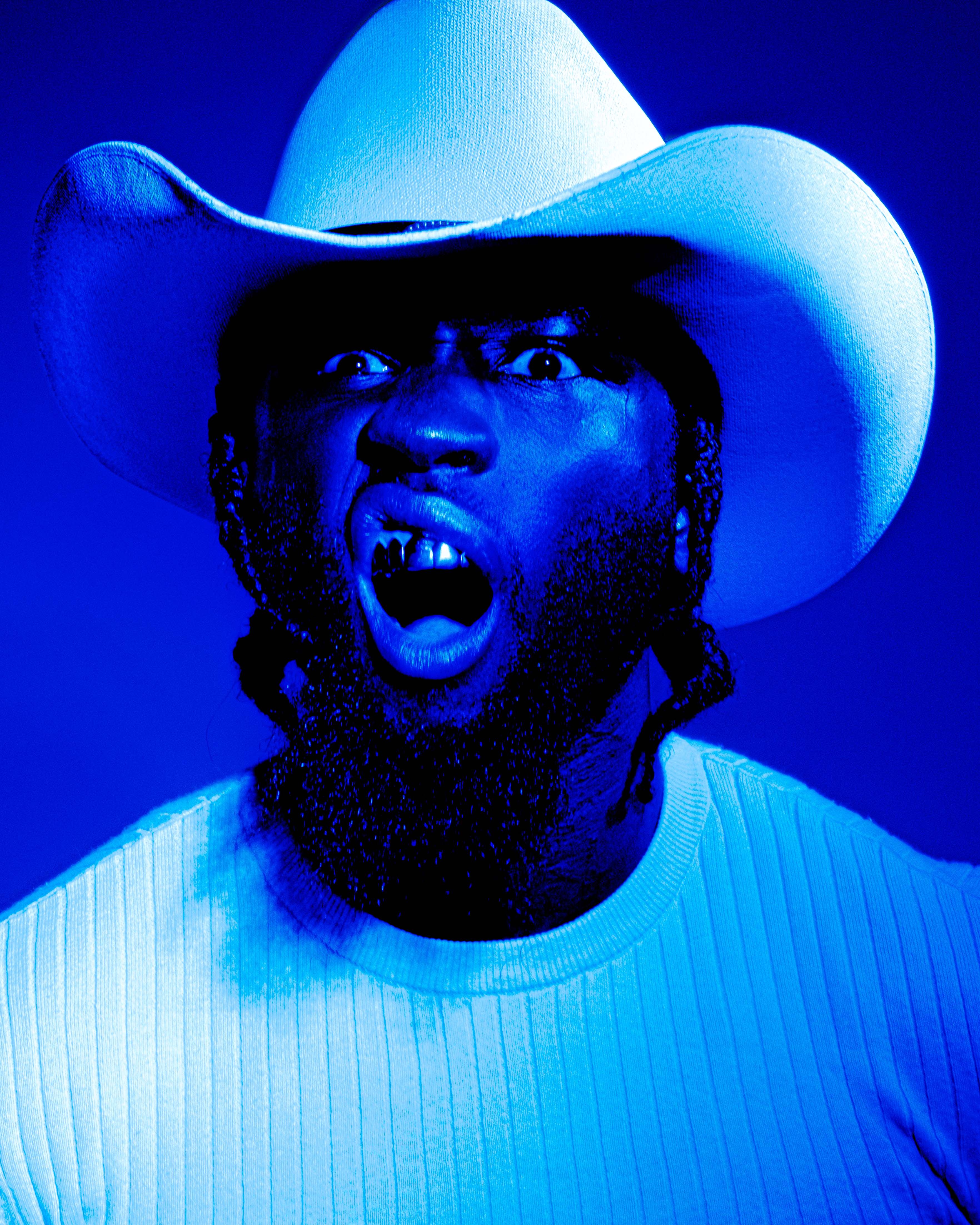
When Denzel Himself greets me for our interview, he’s in full steez: brown wool ranch jacket, black leather trousers, silver grills, and a pair of Dr. Martens boots from their Gothic Americana capsule collection, a campaign that he fronted. Crowning his dark yet romantic spin on the classic country and western look is a jet black, pinched-front cowboy hat. There’s a reason he calls himself the Goth Cowboy.
By ‘goth’, he’s not talking about the subculture or musical genre, but “anything or anyone who’s been othered, or is the underdog”, he explains. The cowboy, on the other hand, is a silhouette he’s long been fascinated by, though it’s not something he can intellectualise. “Those have been motifs in my work from the beginning,” Denzel says, sitting on a bench in Finsbury Park, North London, on an unseasonably sunny March afternoon.
Denzel was not always the Goth Cowboy, though there were some hints of the persona he’d eventually come to inhabit as far back as when he first started releasing music in his early twenties. “One of the first things I put online was an Erykah Badu remix called ‘Denzel Himself’s Cowboy Remix’. It’s still on SoundCloud. The proof is there,” he says. Back then, he was just regular Denzel Himself, a rapper and producer from the outer edges of London with a leftfield sensibility. Magazines were quick to pick up on his work, praising not only his sense of experimentation (this was rap music that readily embraced everything from thrasher punk to electronic noise) but also his DIY methods, with his tracks being self-produced, self-released, and with self-directed visuals to match.
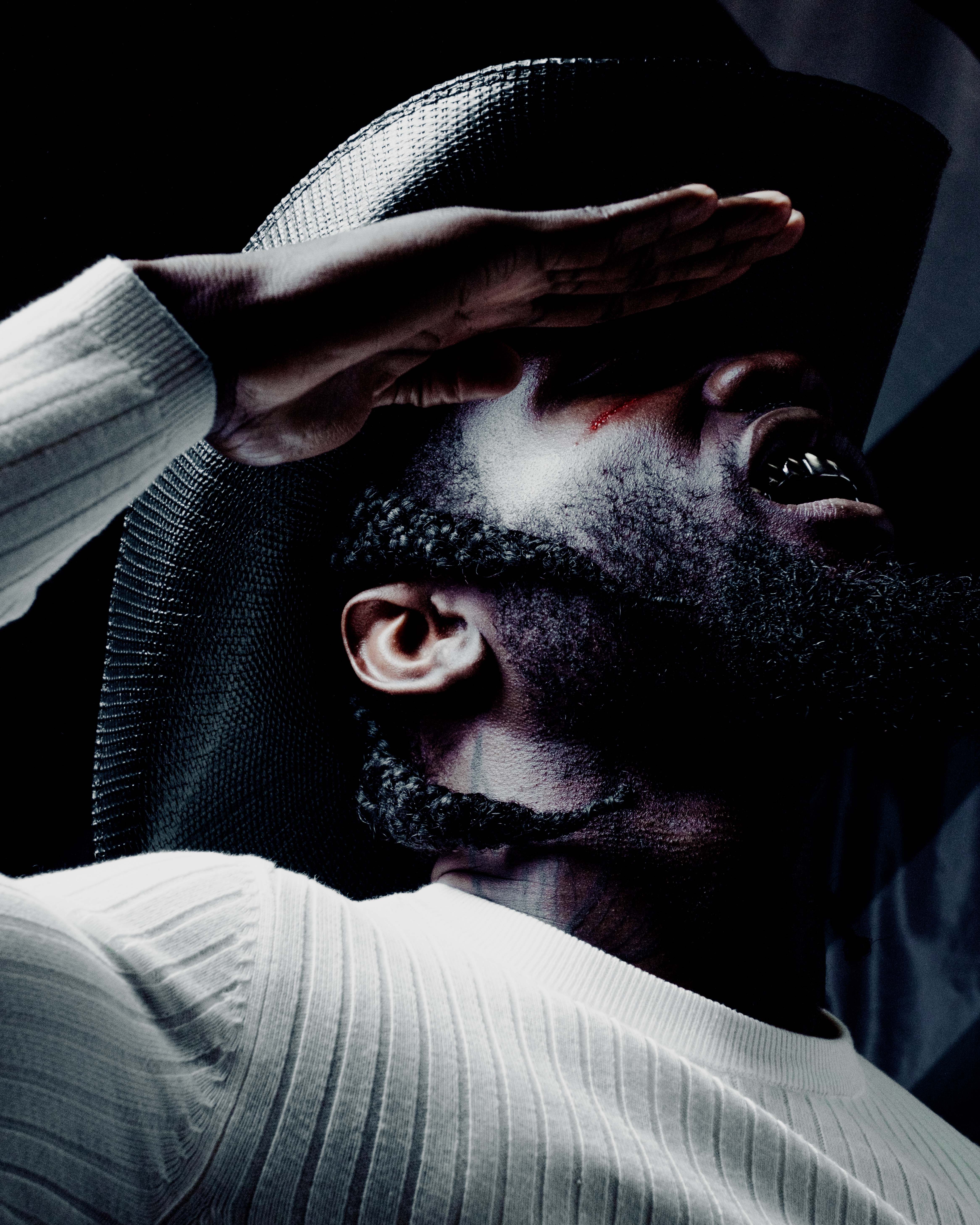
It wasn’t long before the record labels started calling. Sadly, that’s where it all started to go wrong. “At that point, I had zero experience or wisdom or foresight when it came to certain facets of the industry,” Denzel says. “I had a short experience with a record label. The way that relationship ended made me think to myself…” He pauses, picking his words carefully. “Honestly, after that, I didn’t want to continue making music. It was quite traumatic.”
It more than just not wanting to make music. He literally couldn’t, even when he tried. “I wasn’t able to produce anything,” he admits. “There was a period where I was on YouTube looking up ‘type beats’ because I thought I’d lost it. That was super depressing. I was known for being self-produced, for being self-directed. Going from being publicly lauded for that, to being on YouTube searching for type beats…”
Instead, he took some time for himself. He travelled. He thought about what he wanted from music, and why he even wanted to make it in the first place. “I said, ‘OK, don’t be silly. This is what you love. You want to get back to this. But when you get back to this, you are going to make the exact music that you want, and give it straight to the people who want to hear it.’” It took eight months before he was able to make a beat again, but when the breakthrough came — an instrumental he made for the track that would eventually become “10”, from 2021’s M.T.V. EP — it kicked off a renewed period of productivity. 12 months later, he was supporting JPEGMAFIA across a tour of Europe.
I caught Denzel’s live show last year, when he performed as part of PC Music’s Pop Crypt showcase at London’s OUTERNET. He brought so much energy to his set that he ended up losing his voice mid-performance (“Yeah, fucking hell. I went too hard during the soundcheck,” he sighs). The PC Music connection came out the blue, when A. G. Cook reached out one day to praise Denzel’s 2019 single “Birdie”, featuring KEYAH/BLU. Denzel had already been following the label, and the work of SOPHIE, for some time. “That was very surreal to me,” he says. It’s still kind of surreal to me, honestly.” Denzel and Cook ended up doing a couple of studio sessions together and released the collaboration “H2O2”, from Cook’s Apple vs. 7G remixes album. This April, Denzel is set to open for Cook at a live show at Camden Underworld.
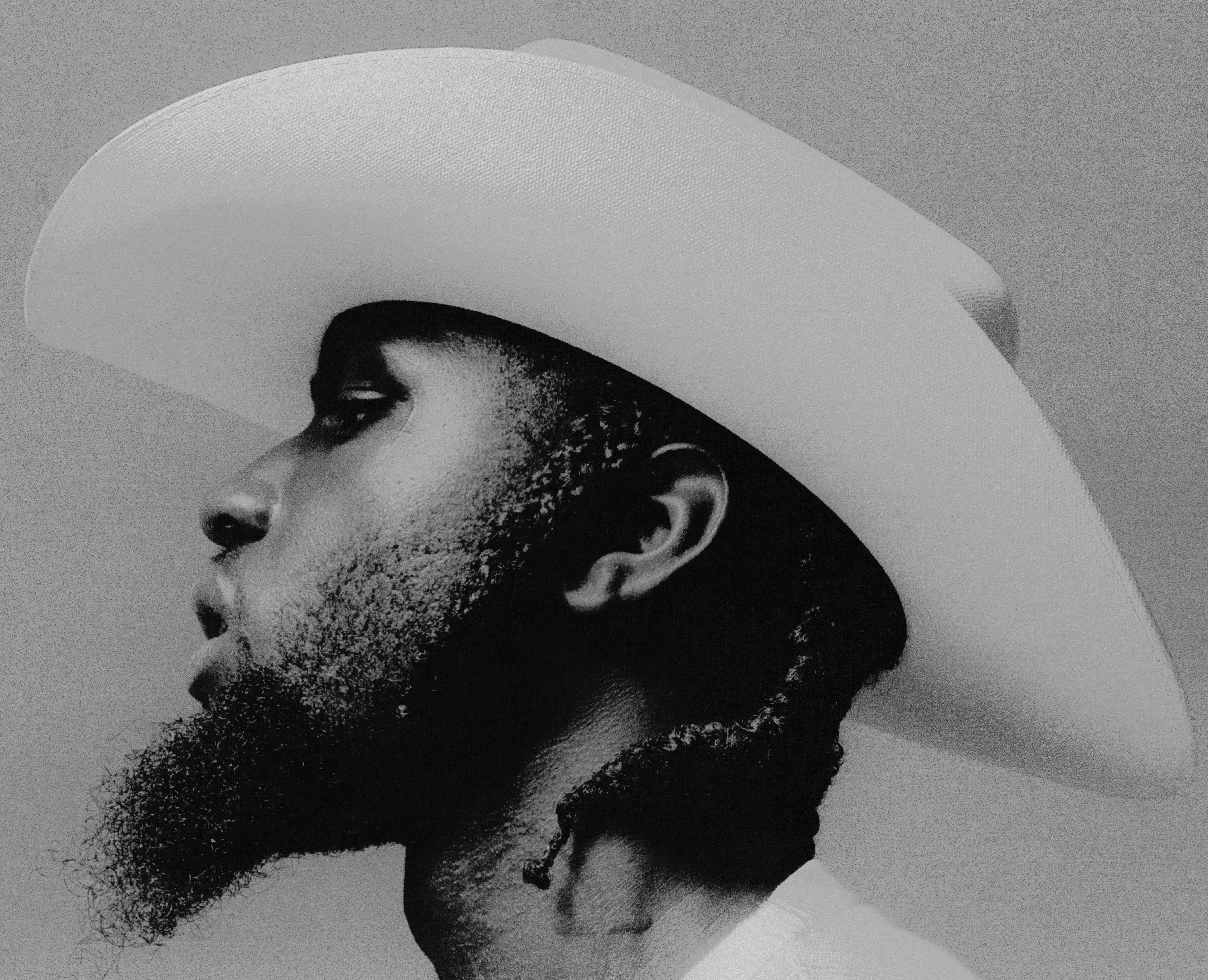
When he was growing up, Denzel remembers music playing from almost every room in the house. Reggae and dub from his dad. Soul and Ghanaian highlife from his mum. UK garage, 2-step, and funky house from his brother. Late ’90s/early ’00s R&B from his sister. The latter proved most influential. He was instantly enamoured with singers like Kelis and Omarion and producers like Just Blaze. “The chords, the songwriting, the structure — it became something I would think about and study quite arduously,” he says.
Denzel was the first person in his immediate family to take music making seriously, despite not being a trained musician himself. Self-taught, he used FruityLoops to recreate his favourite instrumentals before graduating to beatmaking of his own. “I was studying The Neptunes’ production,” he explains. “One thing I took from them was that if you can strip away, then strip away. I don’t have too many bells and whistles in my music. I try to only have what’s totally necessary to get across the emotional objective of the song.”
Rapping quickly followed. So did the music videos. Denzel has a very precise idea of the visual world his songs should inhabit, from the colour scheme down to the locations and camera angles. His vision was so specific that he undertook a course in film production to maintain control of his visual identity. “If I’m listening to a moment in a song, my brain will illustrate a scene verbatim,” he says. “My mind goes to a certain place when I hear it. I have a very heavy colour association with particular notes. That informs my directing. When I’m making an instrumental, I’m thinking: ‘If this song were to have a visual component, there’s no way I’m using X and Y colours.’”
For years he was aware of this synaesthesiac response to art, but it was only recently that he came to understand how it related to other aspects of his life. Around five years ago, Denzel was diagnosed autistic — what was then referred to as Asperger’s Syndrome. “It definitely put a lot of things into context,” he says. “Symptom-for-symptom, it was me on the nose. But I felt like I already knew. It didn’t change much.” Speaking about how the condition manifests for him personally, he describes how it affects “how you interact with the world, how you view the world, how you observe, how dialled into attention to detail, how sensitive you are”. He adds: “You’re very rarely on autopilot. Everything is very intentional. There’s almost like a bloodlust for specificity.”
This is one reason why he strives to stand up for the underdogs. “I want to be that goth cheerleader in the back of your ear,” he says. “When you feel like ‘I can’t do this, I can’t achieve anything,’ I want to be the exemplification of: Yes you fucking can. Because I’m just like you, and if I can do the things that I do, then you definitely can as well.”
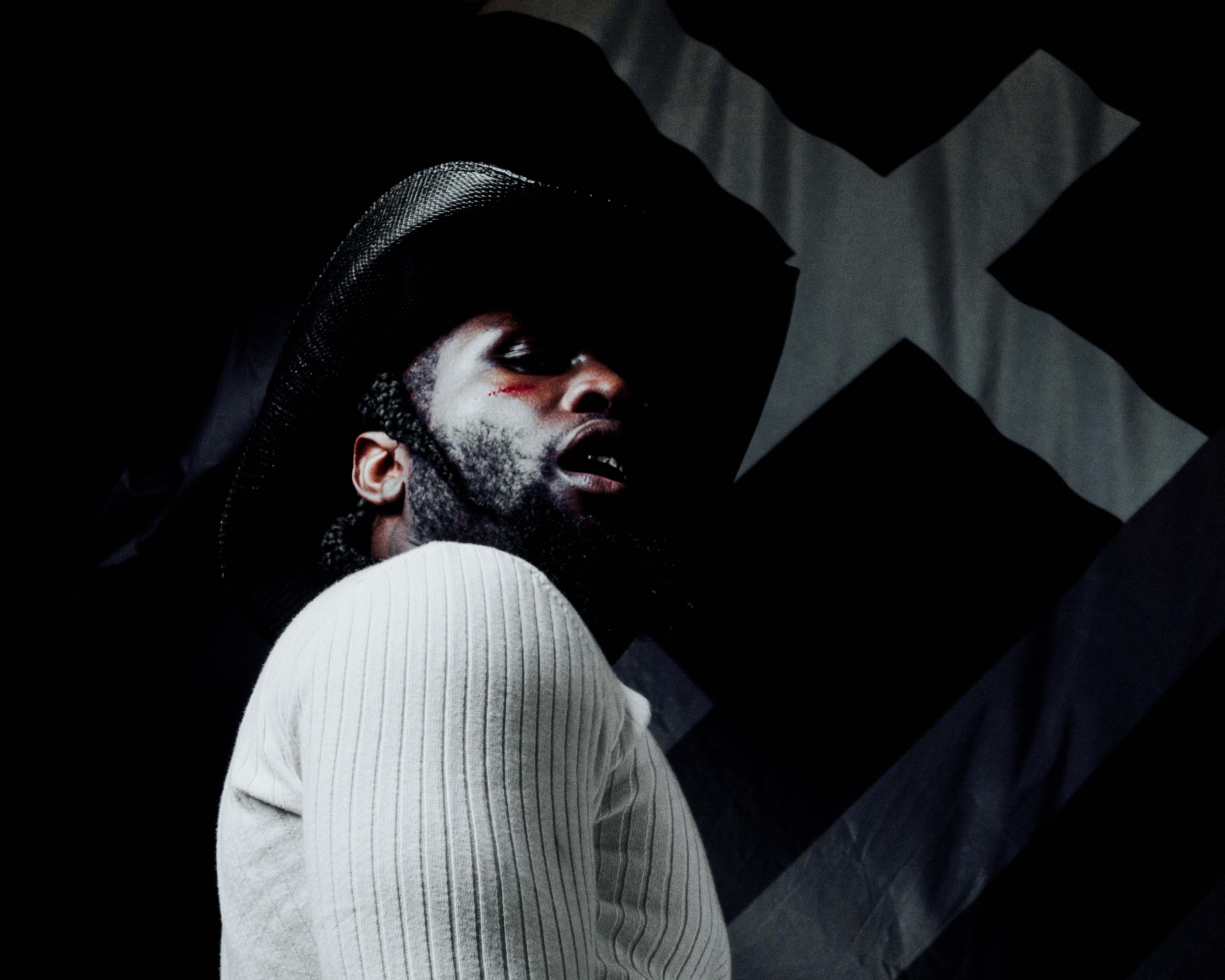
When I ask Denzel what’s been inspiring him recently, he tells me he’s interested in bringing jazz principles more deliberately into his music. The lightbulb moment came when revisiting Amerie’s first two albums for the first time in his adult life and being blown away by the work of producer Rich Harrison. He decided that if he wanted to make music that was as emotionally resonant with his audience, he’d need to learn some music theory. “The irony is, the more I learned, the more I realised I was always doing it,” he says. “Thinking back to all my favourite songs growing up, the moments that were giving me butterflies, 99.9% of them are just jazz chords. I feel like I’ve had a rebirth within jazz — but I’m also going back home, because I never left.”
This has been coupled with a renewed intentionality within his lyrics, something he’d previously approached from a purely aesthetic perspective, where how it sounded was more important than what was being said. “At certain points I’d even make up words,” he says. “Touring the world, reading messages of how my work affects people, I want to keep the beauty of the aesthetic but I also want to inarguably be understood by listeners and talk about things that are important to me.”
Touring the world has taken him across the UK and Europe, with highlights in Paris and Berlin. “If you make electronically produced music, when you’ve brought up your baby from the first snare, going to a country you’ve never been before and having people in front of you going crazy and screaming the lyrics back to you is something you can never put into words,” he says. “It demonstrates the importance and power in what you’re doing. You see the positive effects of your work. It makes you a bit more dutiful in what you’re doing.”
I ask what he means by ‘dutiful’. He explains that once you observe crowds responding to your work, what you’re doing becomes bigger than the individual. “You’re just the mouthpiece and the working hand for an almost cosmic plight — at least how I see it,” he says. Hence his artist name: ‘Himself’, in the third-person, not ‘Myself’ in the first. “It’s not about me. It’s about what I represent and what I serve.”
And what, or who, does he serve? There’s a slogan that he swears by, a guiding philosophy, the sort of thing he’d have emblazoned on his headstone in the future. “Making sure the goths win,” he says. “That’s what I live and die by.”
